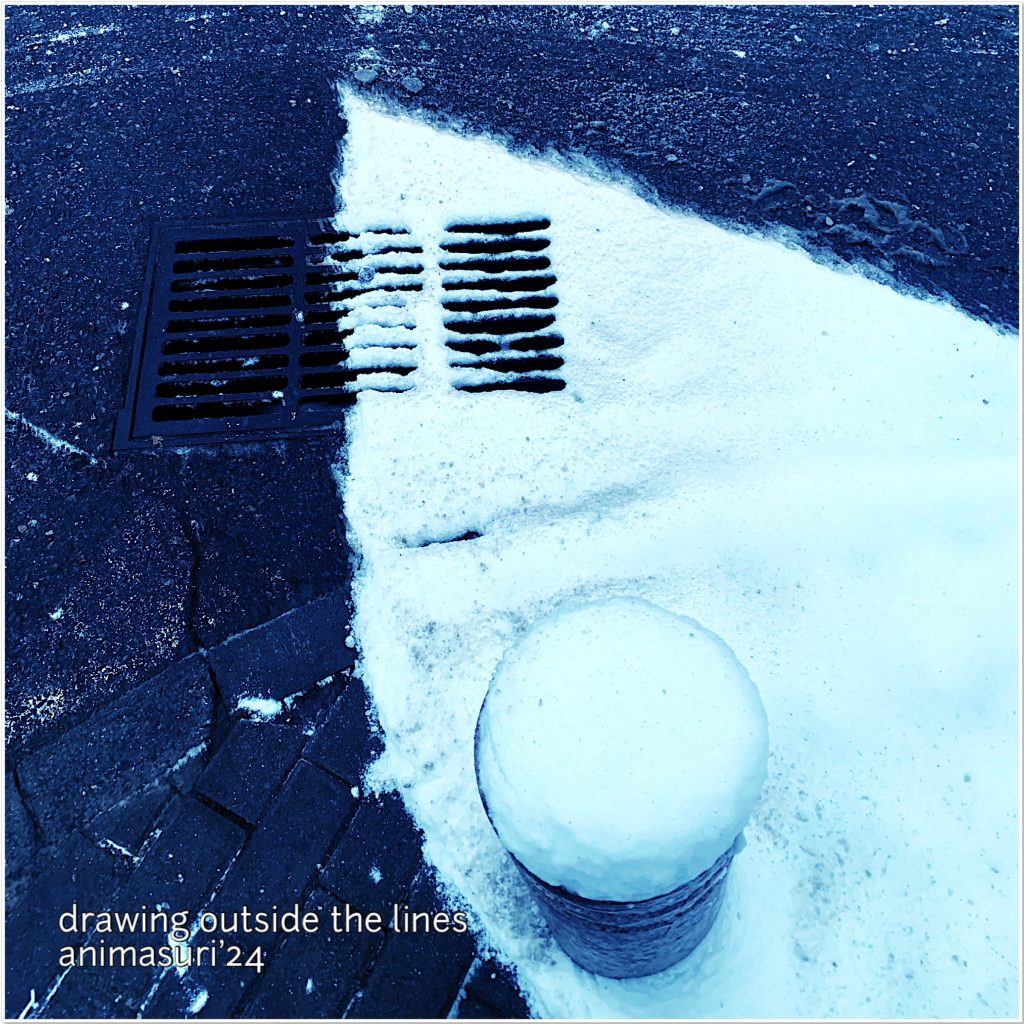Sculpture,
a highest form
of information
learning
as chiseling at
subtractive synthesis
until the hand
rocks it as stoning
to end dialogue
and the model
becomes negative space
for you to be reformed
and yet,
—animasuri’24
—-•
some triggers
Blain, S. D., Longenecker, J. M., Grazioplene, R. G., Klimes-Dougan, B., & DeYoung, C. G. (2020). Apophenia as the disposition to false positives: A unifying framework for openness and psychoticism. Journal of Abnormal Psychology, 129(3), 279–292. https://doi.org/10.1037/abn0000504
Casten, JD. (2012). PartII • Major Advances in the Philosophical History of Cognitive Conceptualism. Chapter 22. Derrida: The Subject of Deconstruction
Situating the Future (p465) • The Copy before the Original? (pp474-478) IN: Casten, JD. (2012). Cybernetic Revelation. Deconstructing Artificial Intelligence. https://philpapers.org/archive/CASCRD-2
Elder, J. H., Goldberg, R. M. (2002). Ecological statistics of Gestalt laws for the perceptual organization of contours. IN: Journal of Vision 2002;2(4):5. https://doi.org/10.1167/2.4.5.
Llach, D. C. (2021). Sculpting Probabilistic Spaces: Brief History and Prospects of Machine Learning in Design. IN: As, I., Basu, P.(2021). The Routledge Companion to Artificial Intelligence in Architecture. London: Routledge
Fiebrink, R. (2015). Data as design tool. How understanding data as a user interface can make end-user design more accessible, efficient, effective, and embodied, while challenging machine learning conventions. IN: International Conference on Auditory Display (ICAD) 2015. Graz, Austria 8-10 July 2015. [Conference or Workshop Item] https://research.gold.ac.uk/id/eprint/17626/ AND
https://research.gold.ac.uk/id/eprint/17626/1/ICAD%20Proceedings%2015-Keynotes.pdf
Rodighiero, D., Wandl-Vogt, E., Carsenat, E., Jules, D., Elias, O., Fragner, M., & Farkashazy, S. (2022). Immersive Architectures for Visual Data Literacy. Information Design Journal, 27(3), 295-308. https://doi.org/10.1075/idj.22016.rod
Kiefer, C. Ziegler, T., Tensen, M., Hahn, A., Wassmuth, N., Rymer, P., Marbach, B. (2022). AI Sculpting co-creation in the age of artificial intelligence. Online, Berlin, Germany: onformative. studio for digital art and design.
https://onformative.com/work/ai-sculpting/
Su, K. (2020). Cluster Diffusing Shuffles. (clustering illusion). Thesis: University of Illinois at Urbana-Champaign. https://arxiv.org/pdf/2006.09874.pdf
Tensen, M., Hahn, A., Kiefer, C. Wasmuth, N., Marbach, B. (2022). Reinforcement Learning applied to sculpting: A technical story of AI craftsmanship. Online, Berlin, Germany: onformative. studio for digital art and design. https://docs.google.com/document/d/1Ug88-bEwDw1oJA_BRlZwM9Aj7RM-HfrUBiLd8mKVPoQ/mobilebasic
Wang, C.,Yu, L., Mo, Y.,Wood, L.C., Goon, C. (2022). Pareidolia in a Built Environment as a Complex Phenomenological Ambiguous Stimuli. IN: Int. J. Environ. Res. Public Health 2022, 19, 5163. https://doi.org/10.3390/ijerph19095163 AND https://www.ncbi.nlm.nih.gov/pmc/articles/PMC9103170/

